-
To
chevron_right
Live Sports Piracy: France ‘Contained’ Illegal IPTV & Illicit Streaming in 2024
news.movim.eu / TorrentFreak • 21 May • 5 minutes
 Around 15 years ago, the French government launched an expansive monitoring and enforcement system to fight online piracy.
Around 15 years ago, the French government launched an expansive monitoring and enforcement system to fight online piracy.
With fines and internet terminations for recidivists, the so-called Hadopi system was arguably ahead of its time. Users of the peer-to-peer BitTorrent-like networks that Hadopi had been designed to prowl, almost universally hated it.
Yet, for the many pirates that had already migrated to file-hosting, indexing, and streaming platforms, and the millions more in the process of doing so, the Hadopi deterrent had arrived late to a party already underway at a new location. Since streaming services were immune to the P2P eavesdropping skills of Hadopi, blocking access to pirate sites was one of the few options left.
The Arcom Era
Mapping, understanding, and restricting the French piracy landscape now falls to regulator Arcom. At a time when sports leagues and their broadcasting partners speak of multi-billion euro annual losses, Arcom has much to do. With the provisions available under the French Sports Code, it also has the authority to do so.
Rightsholders able to show “serious and repeated infringements” of their IP rights can ask a court to demand “all appropriate measures” to prevent or limit the infringement, from any person/entity in a position to do so. As seen in recent cases involving Cloudflare and Google , third party DNS resolvers fall within that scope. A ruling earlier this month means that VPN providers will also have to comply .
Under the orders of a judge at the Court of Paris, Cloudflare and Google must restrict access to named pirate sites by blocking resolution of their domain names. A new report published by Arcom provides an overview of blocking measures in France during 2024 and the first few months of 2025. Given the scale, if Cloudflare, Google, and the VPN providers are included in future blocking applications as standard, all will become instantly busy.
The report also casts more light on Arcom’s role after blocking orders are handed down, and provides data which reveals the scale of blocking carried out to date. Whether results at the consumer end amount to victory, acceptable progress, treading water, or something much less, depends on information rarely seen in a blocking report. Unfortunately, sales data makes no appearance here either.
Headline Piracy Consumption Data
Rather than a catch-all category of ‘illegal streaming’, the report differentiates between watching streams via a traditional streaming website, and consuming streams via a pirate IPTV service more likely to cost money.
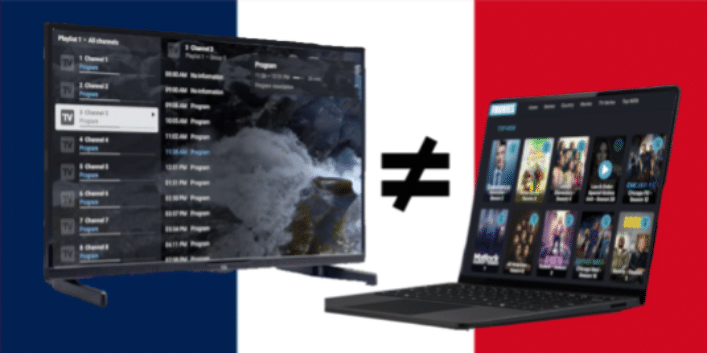 Arcom reports that 2,028 live streaming domains were blocked in 2024, compared to 1,769 IPTV domains. For context, just 77 IPTV domains were blocked in 2023.
Arcom reports that 2,028 live streaming domains were blocked in 2024, compared to 1,769 IPTV domains. For context, just 77 IPTV domains were blocked in 2023.
Arcom says that 16% of French people admit to using live streaming sites, compared to just 12% for IPTV. Of immediate concern is the apparent influx of new users to the latter.
In 2023 around 26% of IPTV users had been consuming content this way for less than a year. In 2024, four in ten (41%) said they’d been using pirate IPTV services for less than 12 months. That may raise questions of whether greater awareness of piracy issues is having the intended effect.
Overall, 18% admitted to consuming live sports broadcasts from illegal sources in 2024, a small reduction on the 19% from the previous year. Whether ‘containing’ piracy year-on-year will be seen as acceptable seems unlikely. However, for governments hoping to move the needle by cracking down on end users, a finding in the report should give pause for thought.
“[T]he propensity of viewers [using illicit sources] to also subscribe to legal paid offers remains high: 60% of them pay for sports offers, twice as much as the average French person (32%, a slight decrease compared to 2023),” Arcom notes.
Headline Blocking Data
With site blocking firmly established as the anti-piracy weapon of choice, rightsholders hope that visiting blocked domains will cause inconvenience and disappointment to combine so often that paying for content becomes more attractive.
“Nearly a third of Internet users using illegal streaming sites have encountered blocking measures implemented by Arcom, an increase of five points, and 71% of them end up abandoning their attempts at illegal viewing,” Arcom reports.
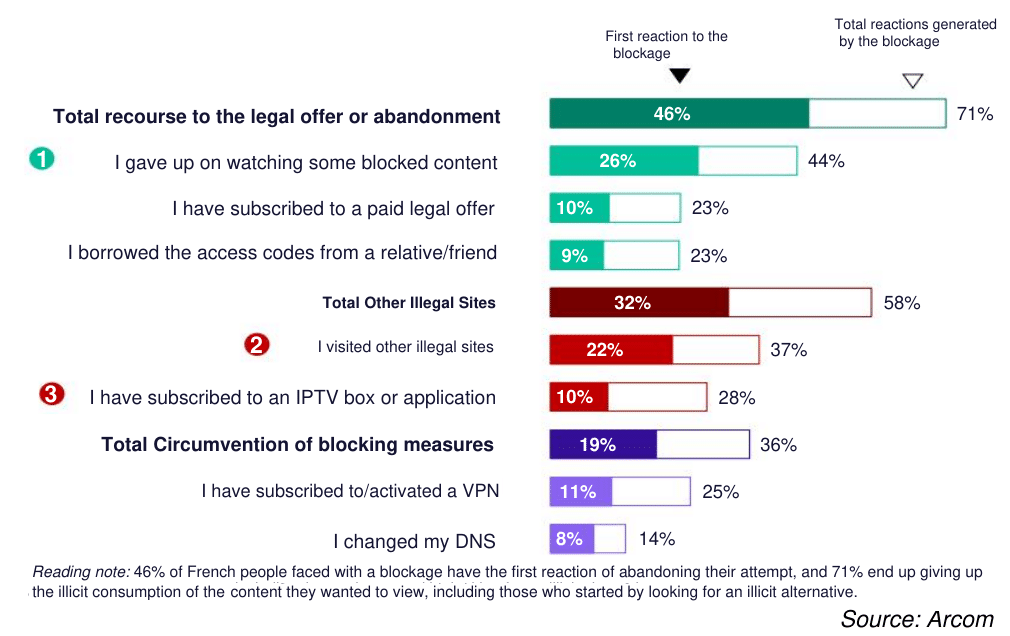
A blocking message exposure rate in excess of 30% doesn’t seem unreasonable; between Arcom and the Court of Paris, pirate domains are being blocked in their thousands.
Domains vs Sites
When rightsholders file blocking applications at the Court of Paris, the paperwork sets out a case in favor of blocking along with a list of infringing domains. In some cases recent applications have contained anywhere between 100 and 150 domains, which can lead to media reports conflating domains with the number of sites targeted. The data suggests that the difference is important.

When the Court of Paris approves blocking measures, the domains in the application are blocked by local ISPs. At some point, pirate site operators usually deploy countermeasures to limit the effect of the blocking.
Depending on the targets, that could mean the deployment of a new domain, ten new domains, or 10,000 unique and impossible to read subdomains, followed by a complete rebrand. Whatever the response, rightsholders and Arcom are kept busy.
Dynamic Blocking Now a Minimum Requirement
Today’s blocking orders anticipate countermeasures by providing flexibility. All rightsholders have to do is keep track of any new domains facilitating access to the sites behind the domains listed in the initial order, then provide Arcom with a new list of pirate domains. Much easier said than done.
Once Arcom’s agents have carried out relevant checks, Arcom issues notifications for those domains to be blocked along with the domains in the order. In 2024, a total of 3,797 domains were blocked following an Arcom notification, versus just 415 domains in orders issued by the Court of Paris.
When added together, domains authorized for blocking by the Court are just a fraction of domains blocked following Arcom’s notifications.

These figures are broadly similar to those seen elsewhere; when a Court orders domains to be blocked, more likely than not the number of domains that ultimately affects is several times greater than the initial order suggests.
Finally, the French have another powerful tool at their disposal. Sites subjected to blocking measures can be reported to search engines, typically Google and Bing, from where their domains are deindexed, never to be seen again. The downside is a visibility boost for malicious pirate sites and various scams, which typically target less savvy users before parting them from their money.
Arcom’s report is currently available in French and is linked below. All translations and presentation of Arcom data here should be considered unofficial.
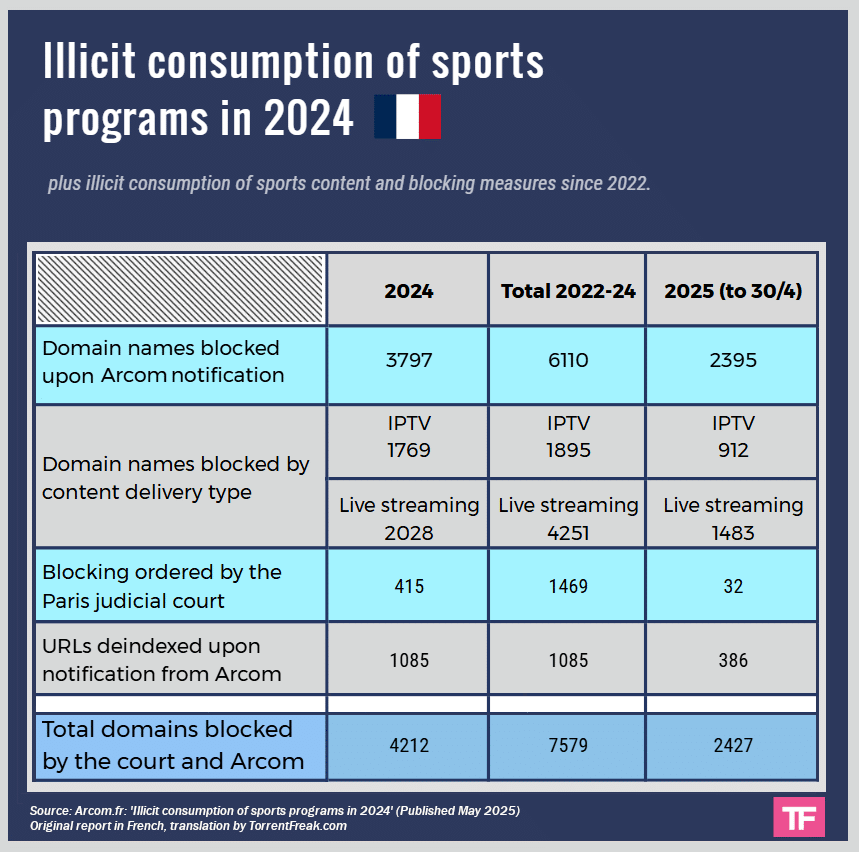
Arcom’s Illicit Consumption of Live Sports in 2024 report is available here (pdf)
From: TF , for the latest news on copyright battles, piracy and more.

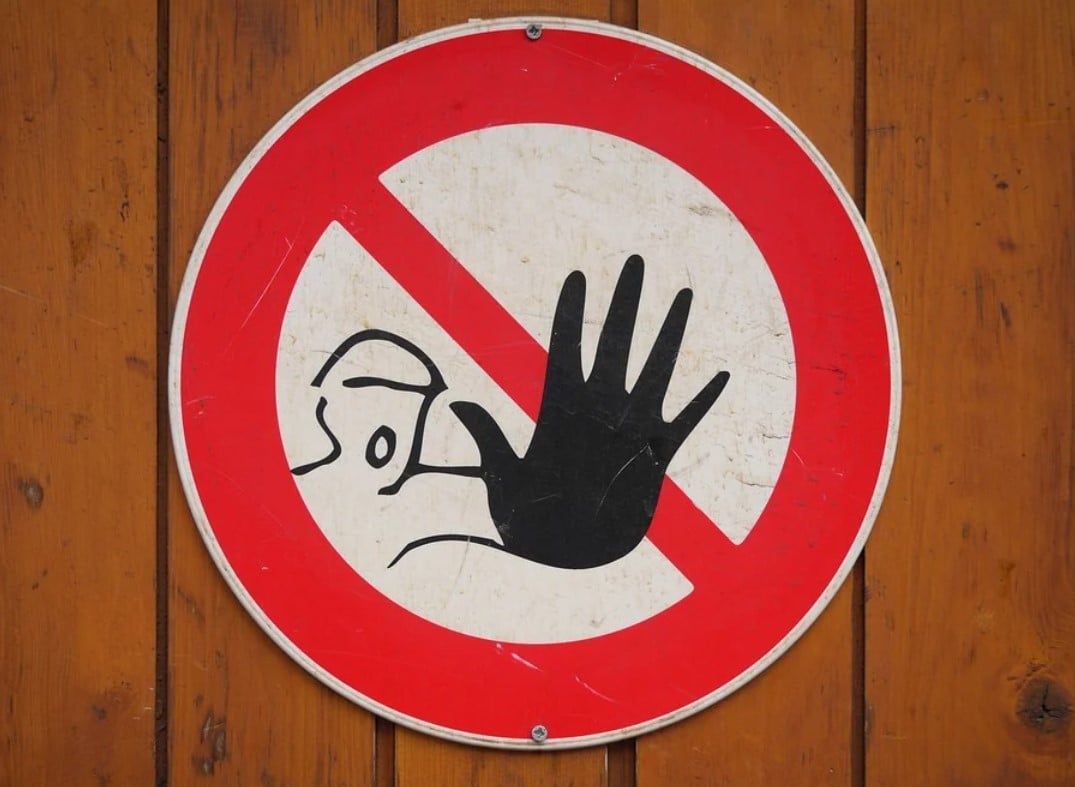 After a decade of focusing on efforts overseas, the push for website blocking has landed back on American shores.
After a decade of focusing on efforts overseas, the push for website blocking has landed back on American shores.

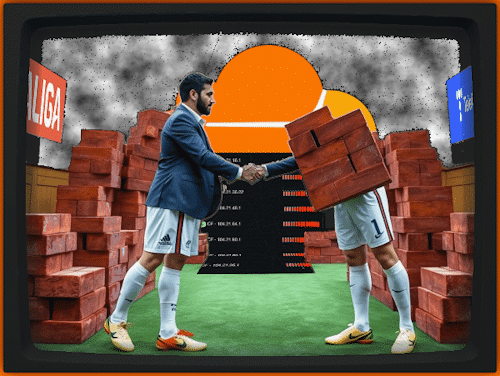 Rampant piracy of live sporting events has been a hot topic in Europe for several years. Anti-piracy measures against relatively static targets have their place but preventing access to pirated live streams is much more difficult.
Rampant piracy of live sporting events has been a hot topic in Europe for several years. Anti-piracy measures against relatively static targets have their place but preventing access to pirated live streams is much more difficult.
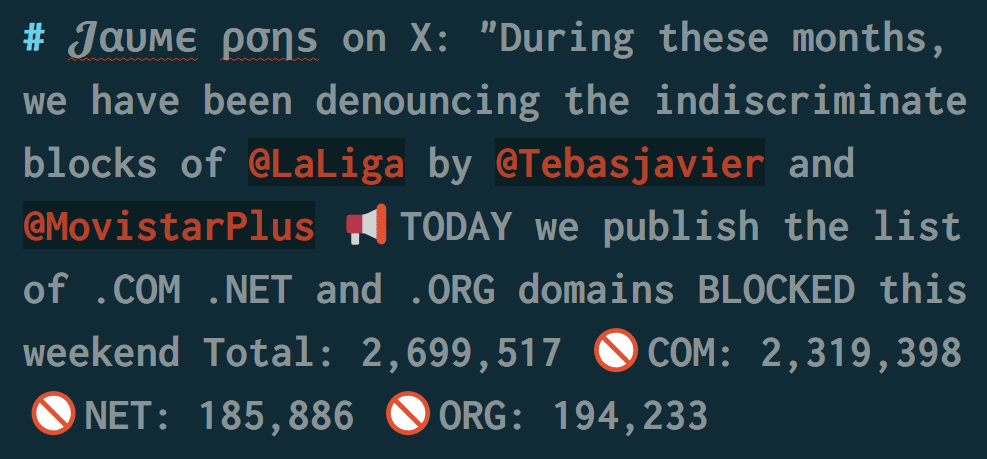
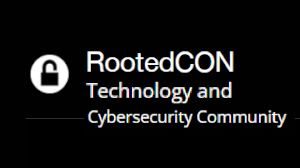 Despite the serious nature of the ongoing controversy, until now it has generally lacked a political dimension.
Despite the serious nature of the ongoing controversy, until now it has generally lacked a political dimension.
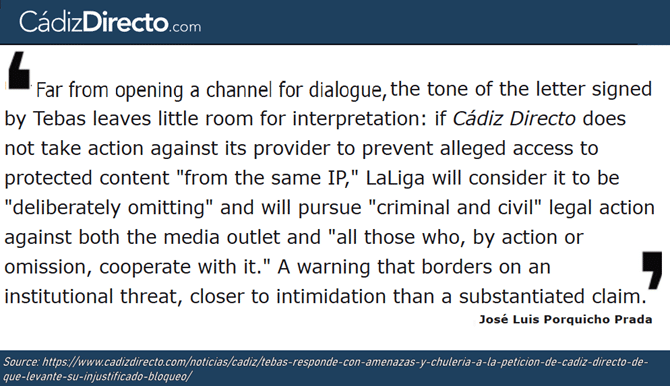
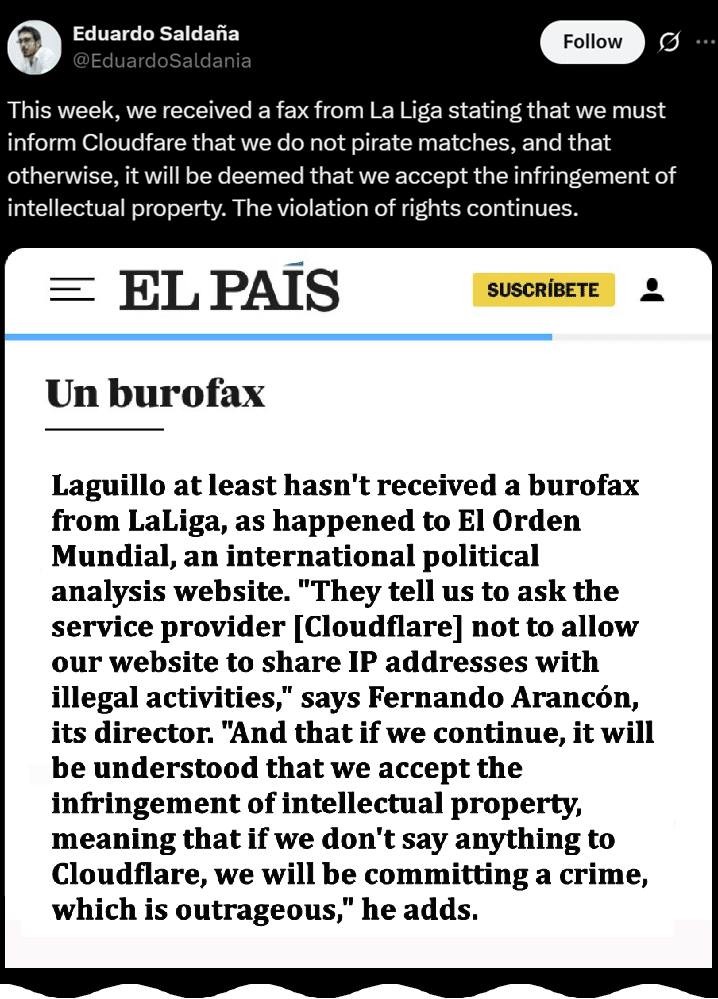
 The
The

